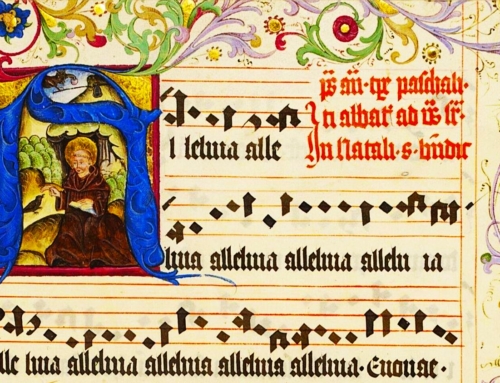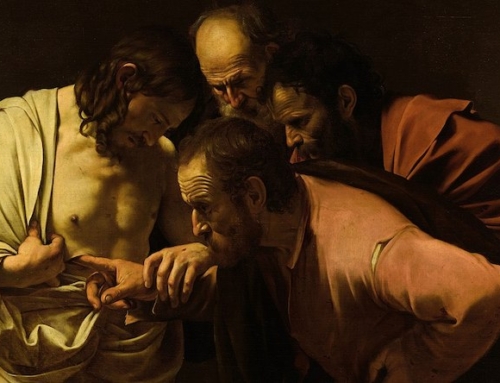Laugh and the world laughs with you;
Weep, and you weep alone.
For this sad old earth must borrow its mirth,
But has trouble enough of its own.
The famous opening lines of Ella Wheeler Wilcox’s signature poem “Solitude” provide a timely reminder of how to approach the home stretch of Lent. Seeing the rose-colored vestments on Laetare Sunday, we were given some food for thought as we continue our Lenten fasting in light of the upcoming triumph of Easter which draws ever nearer. After all, the word “laetare” is the command, “rejoice!” – which is an odd directive with more than two weeks of Lent still before us—to say nothing of the commemoration of the Lord’s Supper, Passion, and Death which come before the Easter Vigil. Yet everything we do as Christians must be seen in the light of the Lord’s Resurrection, not simply Christ’s passion. Furthermore, a spirit of joyfulness is consistent with the Gospel given us as Lent began on Ash Wednesday:
And when you fast, do not look dismal, like the hypocrites, for they disfigure their faces that their fasting may be seen by men. Truly, I say to you, they have received their reward. But when you fast, anoint your head and wash your face, that your fasting may not be seen by men but by your Father who is in secret; and your Father who sees in secret will reward you. (Mt 6:16–18)
How often do our faces bear the dreary frown of disaffection when we show up at Mass, even when we are not fasting or interiorly withdrawn in prayer? Although we don’t mean to do so, we limit the impact of our fasting and prayer by locking it within ourselves. In his meditations, In Conversation with God, Francis Fernandez-Carvajal challenges our dour expressions:
The world is in need of many things . . . It is in great need of apostles who are holy, cheerful, loyal to the Church and eager to make Christ known. Let us ask ourselves whether we reflect extreme joy in our daily life. We have so many reasons to be happy: the wonder of divine filiation, the comfort of Divine Mercy, the knowledge that we are on the road to heaven. . .the joy of being able to receive communion so often!
Blessed Pier Giorgio Frassati lived as just such a saint. Bl. Pier Giorgio (1901-1925) so thoroughly maintained a connection to Jesus—above all through frequent reception of the Eucharist and Eucharistic Adoration—that he was famous for his joy and good cheer in all situations. At a time of particular personal sorrow, he wrote to his sister Lucinda, “You ask me whether I am in good spirits. How could I not be so, so long as my trust in God gives me the strength to be happy? We should always be cheerful. Sadness should be banished from all Christian souls . . . Even in the midst of intense suffering, there is [a path] of joy.”
As we make ourselves aware of the heavenly gifts God always provides us, even in the midst of suffering, we can make way for Christ’s joy to enter us, turning our prayer and fasting into a priceless act of almsgiving as we give joy to this “weary old earth.” Such joy is not only helpful, but indispensable as we strive to live a fully Christian life. For we are called not to focus on our immediate tribulation, but to live focused on God and on His act of salvation which we are preparing to celebrate at Easter. St. Paul has this in mind when he says,
Through him we have obtained access to this grace in which we stand, and we rejoice in our hope of sharing the glory of God. More than that, we rejoice in our sufferings, knowing that suffering produces endurance, and endurance produces character, and character produces hope, and hope does not disappoint us, because God’s love has been poured into our hearts through the Holy Spirit which has been given to us. (Rom 5:2–5)
Therefore we are called to make room in our hearts to laugh, to lighten our lips with a smile as we enter the fourth week of Lent. As Emma Wilcox’s poem suggests, our own joy will soon take root in those around us, allowing the rose vestments to color our whole outlook and to infuse our prayer and fasting with the appropriate joy of the Lord. Easter is on its way, so “rejoice in your hope, be patient in tribulation, be constant in prayer” (Rom 12:12).
✠
Image: Blessed Pier Giorgio Frassati (center)







